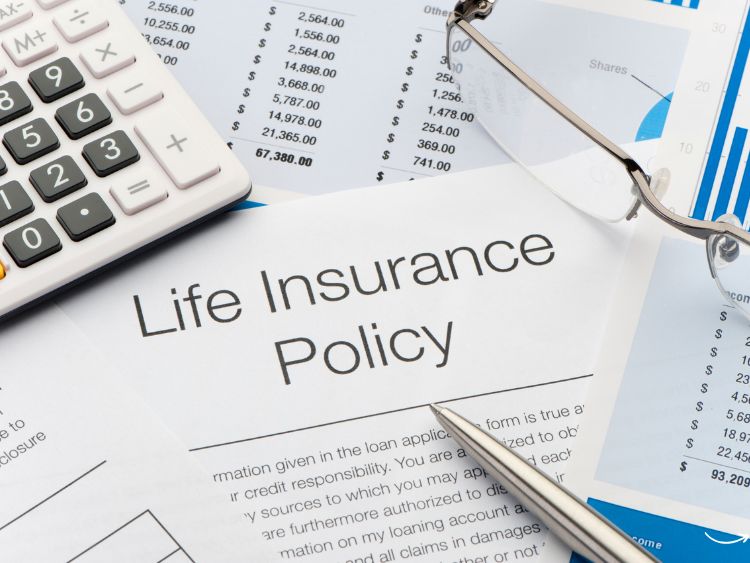Navigating the world of insurance can often feel like wading through a sea of jargon and fine print. Among the many options available, term life insurance stands out for its simplicity and affordability. But what exactly is “ing term life insurance,” and how can it benefit you and your loved ones? In this article, we’ll dive deep into the intricacies of term life insurance, explore its benefits and drawbacks, and provide you with the information you need to make an informed decision.
What is Term Life Insurance?
Term life insurance is a type of life insurance policy that provides coverage for a specific period or “term,” typically ranging from 10 to 30 years. Unlike whole life insurance, which lasts for the policyholder’s entire lifetime and includes a savings component, term life insurance is straightforward: you pay premiums, and if you pass away during the term, your beneficiaries receive a death benefit.
Key Features of Term Life Insurance
- Fixed Term: Coverage lasts for a predetermined number of years.
- Affordable Premiums: Generally lower than whole life insurance premiums.
- No Cash Value: Unlike whole life insurance, term life does not build cash value.
- Renewable Options: Many policies offer the option to renew at the end of the term.
Why Choose Term Life Insurance?
Term life insurance is an excellent choice for individuals seeking an affordable way to provide financial protection for their families. Here are some compelling reasons to consider this type of policy:
Affordability
One of the main advantages of term life insurance is its affordability. Premiums are generally lower than those for whole life insurance, making it accessible for young families and individuals on a budget.
Flexibility
Term life insurance offers flexibility in choosing the length of coverage that fits your needs. Whether you need a policy to cover the years until your children are financially independent or until your mortgage is paid off, there’s a term length to match.
Simplicity
With no investment component to worry about, term life insurance is straightforward. You pay the premiums, and the policy provides a death benefit if you pass away during the term. It’s as simple as that!
Drawbacks of Term Life Insurance
While term life insurance has many benefits, it’s important to consider the potential drawbacks:
Temporary Coverage
The primary disadvantage of term life insurance is that coverage is temporary. Once the term expires, you no longer have insurance unless you renew, which can be significantly more expensive.
No Cash Value
Term life insurance does not build cash value over time, which means you can’t borrow against the policy or use it as an investment vehicle.
Types of Term Life Insurance
When exploring term life insurance, you’ll encounter several variations, each with its own features and benefits:
Level Term Life Insurance
This is the most common type of term life insurance. The death benefit and premiums remain the same throughout the term. It’s ideal for those who want predictability in their insurance costs.
Decreasing Term Life Insurance
In this type of policy, the death benefit decreases over time, typically in line with a mortgage or other debt that is being paid off. Premiums usually remain level throughout the term.
Renewable Term Life Insurance
Renewable term policies allow you to renew your coverage at the end of the term without undergoing a medical exam. However, premiums will increase based on your age at the time of renewal.
Convertible Term Life Insurance
Convertible policies give you the option to convert your term life insurance into a whole life policy without a medical exam. This can be a valuable feature if your needs change over time.
How to Choose the Right Term Life Insurance Policy
Selecting the right term life insurance policy requires careful consideration of your personal and financial circumstances. Here are some steps to help you make an informed decision:
Assess Your Needs
Determine how much coverage you need and for how long. Consider factors such as your income, debts, and the financial needs of your dependents.
Compare Policies
Shop around and compare policies from different insurers. Look at the premiums, coverage amounts, and any additional features or riders that may be available.
Evaluate Insurer Reputation
Choose a reputable insurance company with strong financial ratings and a history of good customer service.
Read the Fine Print
Make sure you understand the terms and conditions of the policy, including any exclusions or limitations.
Frequently Asked Questions (FAQs)
What happens if I outlive my term life insurance policy?
If you outlive your term life insurance policy, the coverage ends, and you will not receive a death benefit. You can choose to renew the policy, purchase a new one, or let the coverage lapse.
Can I convert my term life insurance to a whole life policy?
Many term life insurance policies offer a conversion option, allowing you to convert to a whole life policy without undergoing a medical exam. This can be beneficial if your needs change or if you want lifelong coverage.
How much term life insurance do I need?
The amount of term life insurance you need depends on your financial situation and the needs of your dependents. A common rule of thumb is to have coverage that is 10-12 times your annual income.
Are term life insurance premiums tax-deductible?
In most cases, term life insurance premiums are not tax-deductible. However, the death benefit paid to your beneficiaries is typically tax-free.
What factors affect term life insurance premiums?
Premiums are influenced by several factors, including your age, health, lifestyle, and the length and amount of coverage you choose.
Summary
“Ing term life insurance” offers an affordable and straightforward way to provide financial protection for your loved ones. With its lower premiums, flexibility, and simplicity, it is an attractive option for many individuals. However, it’s essential to weigh the benefits against the temporary nature of the coverage and the lack of cash value. By carefully assessing your needs and comparing policies, you can find the right term life insurance policy to fit your circumstances and provide peace of mind.
Authoritative Links
For further information on term life insurance, check out these authoritative sources:
By considering all the factors and doing thorough research, you can confidently choose the best term life insurance policy to secure your family’s financial future.



